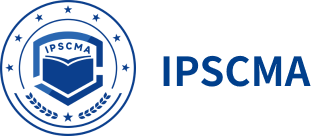In the context of the accelerated restructuring of the global economic pattern, enterprise procurement management is facing unprecedented challenges and opportunities. According to Deloitte's 2023 Global Procurement Outlook report, more than 75% of enterprises are accelerating their digital procurement transformation, and the demand for professionally certified procurement talent has increased by 31% compared to 2022. As one of the most credible international certifications in the field of procurement, CPSM (Certified Professional in Supply Management) is playing an increasingly important role.
In the face of major issues such as the "dual carbon" goal and the construction of supply chain resilience, the professional level of procurement management is directly related to the sustainable development ability of enterprises. According to McKinsey research, procurement professionals with CPSM certification can bring an average of 12%-17% of the cost optimization space to the company, while showing greater expertise in supplier management and risk control.
In this era of uncertainty, a deep understanding of the value connotation and development trend of CPSM certification is of great guiding significance for professionals who expect to achieve a career breakthrough in the field of procurement management.
Since its launch in 2008, CPSM certification has been at the forefront of global procurement management practices. According to the ISM (Institute for Supply Management), as of the third quarter of 2023, there are more than 68,000 CPSM holders worldwide, with an annual growth rate of 23% in the Asia-Pacific region, showing the huge potential of this certification in emerging markets.
The iterative upgrade of the certification system focuses on three areas: digital transformation, sustainable development and supply chain resilience. The 2023 updated exam syllabus adds modules such as digital procurement platform application, carbon footprint management, and supplier ESG assessment, making the certification content more relevant to the actual needs of enterprises. According to PwC's survey data, 87% of companies believe that these new modules are significantly helpful in improving the overall capabilities of their procurement teams.
By establishing a unified body of knowledge and evaluation criteria, CPSM certification provides a clear and progressive path for the career development of procurement management talents. According to the 2023 salary survey conducted by Hudson, an HR consultancy, the average salary level of purchasing managers who are certified by CPSM is 25%-35% higher than that of those who are not certified.
Driven by the wave of digitalization, procurement management is undergoing profound changes. IDC predicts that by 2025, 60% of the world's largest enterprises will deploy intelligent procurement systems. The CPSM certification timely includes digital procurement management into the assessment scope, including the application of cutting-edge technologies such as blockchain traceability, artificial intelligence pricing and smart contract management. The certification emphasizes the ability to use digital tools in real combat. For example, in supplier management, CPSM certified personnel need to know how to use big data analysis platforms to assess supplier risks and establish a dynamic scoring system. According to Gartner, adopting these digital approaches can shorten supplier evaluation cycles by up to 40 percent while improving assessment accuracy by more than 85 percent. In the context of the "dual carbon" strategy, CPSM certification attaches more importance to the cultivation of green procurement capabilities. The new 2023 certification standard requires candidates to master professional knowledge such as carbon footprint accounting methods and supply chain emission reduction strategies. According to the World Economic Forum, procurement decisions affect 50%-70% of a company's carbon emissions, which further increases the value of procurement talent with relevant professional capabilities.
From a practical point of view, the application value of CPSM certification in enterprise procurement management is becoming increasingly prominent. Taking a Fortune 500 manufacturing company as an example, by promoting the procurement team to obtain CPSM certification, its supply chain resilience score (as assessed by Resilinc) increased by 31 percentage points in two years, and the procurement cost reduction rate increased by 8.5% year-on-year. In the next three years, with the acceleration of supply chain localization and intelligent transformation, CPSM certification will further strengthen digital capability certification. Accenture predicts that by 2025, the demand for professionals with digital procurement management capabilities will increase by more than 50% compared to 2023. At the same time, the improvement of ESG (environmental, social responsibility and corporate governance) requirements will also promote the continuous improvement of the CPSM certification system. According to PwC's 2023 survey, 76% of companies plan to increase their investment in procurement talent with ESG management capabilities in the future.
Driven by the reconstruction of the global economic pattern and digital transformation, CPSM certification is playing an increasingly important role. Whether from the perspective of career development or enterprise needs, mastering the knowledge system of modern procurement management and obtaining professional certification will become the only way for procurement talents. It is recommended that professionals who are interested in a career in procurement management should plan their certification learning path early to grasp the development opportunities brought by digital transformation.
